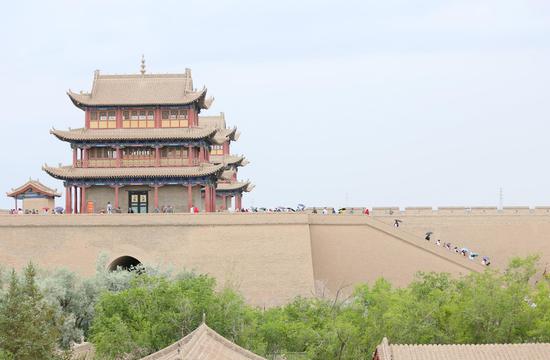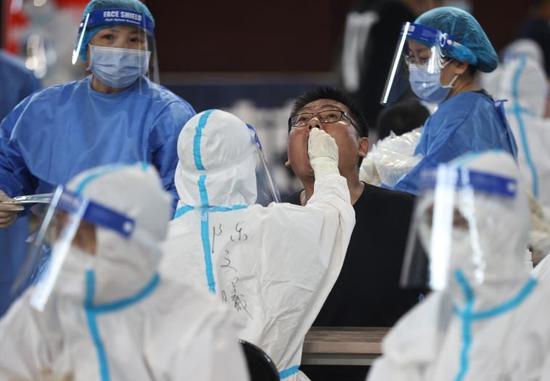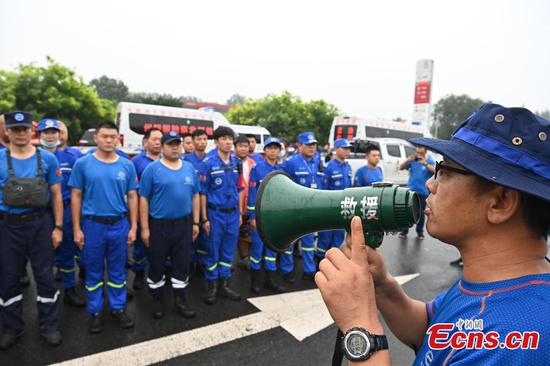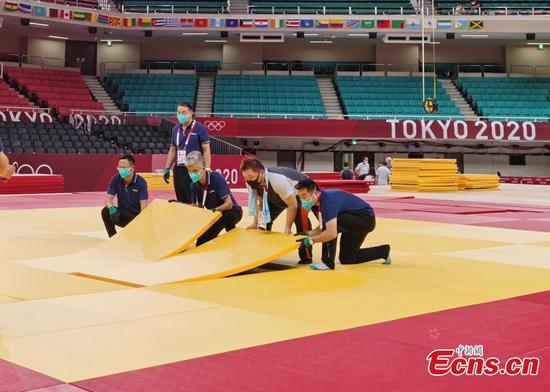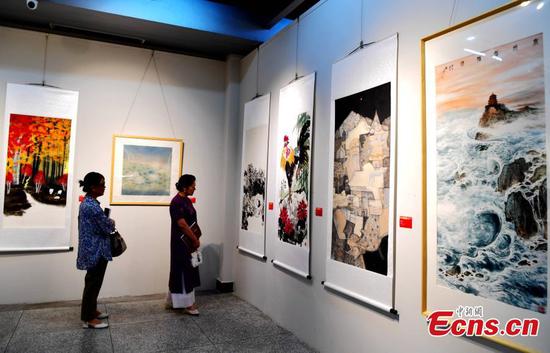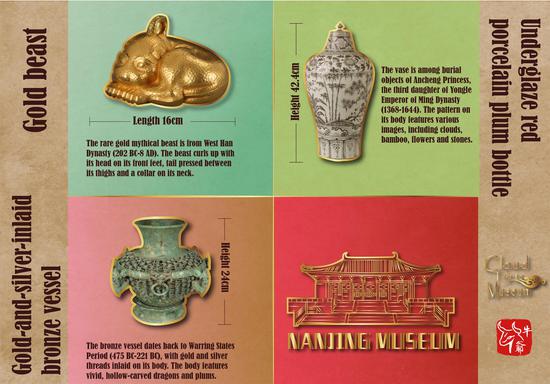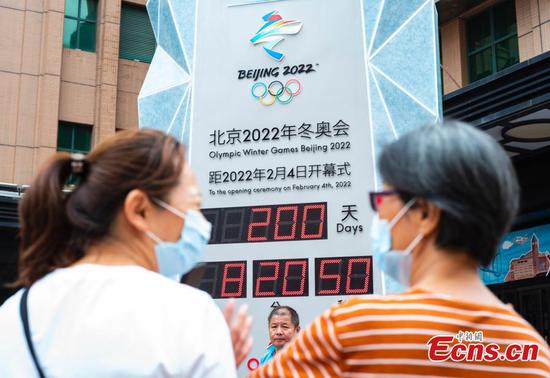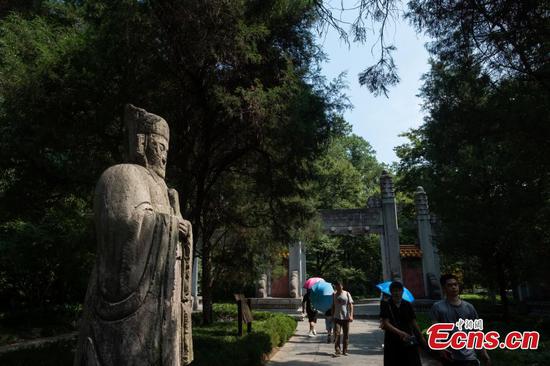
The national flags of China and the United States (Photo/Xinhua)
Visiting delegation told to abandon 'sense of superiority' to advance ties
Chinese officials and scholars have urged Washington to abandon its sense of superiority, saying that Beijing will not back down if visiting U.S. diplomats insist on dealing with China from "a position of strength" at an upcoming meeting.
China will respond with goodwill at the negotiating table if Washington decides to stop exerting pressure and shows a willingness to advance cooperation and manage the differences between the two sides, experts added.
U.S. Deputy Secretary of State Wendy Sherman arrived in Tianjin on Sunday for a two-day visit, a key diplomatic step following the high-level China-U.S. strategic dialogue in Anchorage, Alaska, in March.
The two largest economies in the world have seen their ties further strained in recent months amid Washington's attacks over issues such as Hong Kong, Taiwan, the Xinjiang Uygur autonomous region and COVID-19 origin tracing.
Xie Feng, vice-foreign minister in charge of China-U.S. relations, will hold talks with Sherman, according to a statement by the Chinese Foreign Ministry. State Councilor and Foreign Minister Wang Yi will also meet Sherman.
The visit has been overshadowed by State Department officials' recent comments that the U.S. will deal with China from "a position of strength" during Sherman's visit.
"If the U.S. has not learned to treat other countries on an equal footing, China has the obligation to work with the international community to help the U.S. make up for this lesson," Wang Yi told reporters on Saturday.
The U.S. always wants to use its strength to pressure other countries and thinks it is superior, Wang said when asked about Washington's tough words ahead of the visit.
"There has never been and never should be any country that can be superior to others in the world", and China will not accept such a claim by any country, he said.
Ruan Zongze, executive vice-president of the China Institute of International Studies, said, "A number of signs show that Washington is still under the illusion of talking to China from a position of strength with a haughty tone of hegemony."
Sherman visited Japan, South Korea and Mongolia before arriving in China, according to U.S. State Department officials.
Ruan noted that Washington attempted to seek closer alignment with the countries with the aim of increasing pressure on China, but this attempt "will definitely end up in vain because China never buys into it".
Foreign Ministry spokesman Zhao Lijian said on Friday that during Sherman's visit, Beijing "will continue to elaborate on China's principled position on developing China-U.S. relations and firmly safeguard sovereignty, security and development interests".
Zhao criticized Washington's labeling of China as a competitor, adding that talking to China from "a position of strength" reflects Washington's "arrogance and bullying".
Prior to Sherman's visit, State Department spokespersons and unnamed officials briefed reporters about Washington's views for the upcoming talks, saying the U.S. welcomes "stiff and sustained competition" with Beijing.
Su Xiaohui, deputy director of the Department for American Studies at the China Institute of International Studies, said since the U.S. had proposed the meeting to China, its recent "publicity stunts" were a sign of the "U.S.' lack of self-confidence".
Washington stepping up pressure on issues such as Hong Kong and Xinjiang paves the way for grabbing "bargaining chips" for Sherman's trip, Su said, adding that such an approach will not work.
Beijing has no illusions about the visit. "Productive talks will take place if Washington shows sincerity for the dialogue," Su said.
Diao Daming, an associate professor of U.S. studies at Renmin University of China's School of International Studies, said the talks are the second gathering of senior diplomats from both sides since the strategic dialogue in March. "From past experience, it is particularly important to keep dialogue afloat between China and the U.S.," Diao said.
The recent "twists and turns "surrounding Sherman's visit are "part of Washington's plan to show the world a false scene in which China responds negatively to the U.S.' request for talks," Diao said.
Wang Fan, vice-president of China Foreign Affairs University, said he hopes the bilateral relationship can "stop its decline and avert further losses at an early date for the benefit of the two countries' people and the international community".
Wang said dialogue is better than confrontation, and having talks is "better than nothing".
"It is hoped that the U.S. will change its outrageous practices as soon as possible so that there will be even more talks that are beneficial to the two nations," Wang said.












